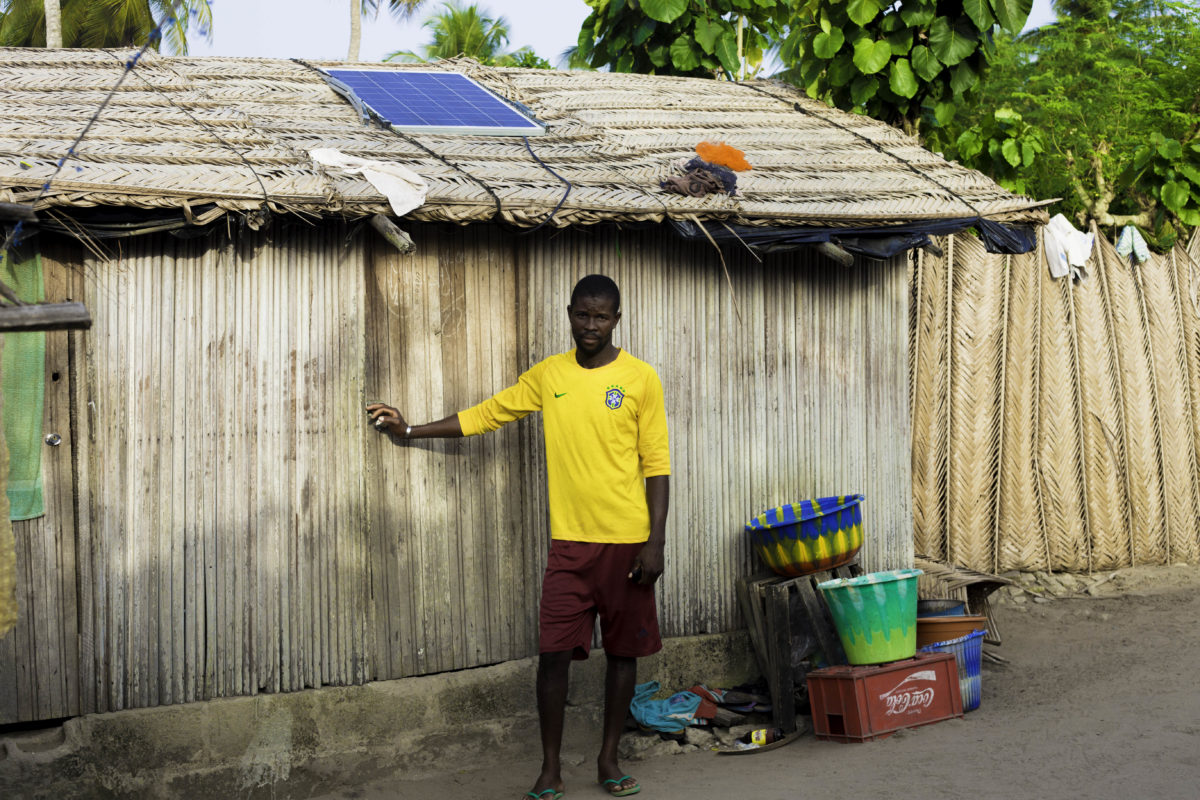Nigeria-based pay-as-you-go (PAYG) solar home system provider Lumos Global has received US$35 million from the U.S. International Development Finance Corporation (DFC) to expand its off-grid solar home systems installation project, which will see 160,000 new solar home kits benefiting nearly one million people.
According to Alistar Gordon, Lumos Group CEO, the DFC funding will empower many Nigerians to seize the numerous opportunities that come with access to affordable and reliable power. “Access to energy is the foundation for a high quality of life, good healthcare, education, and increased income. Our ultimate goal at Lumos is to provide power to everyone,” he said in a press statement issued.
The news follows another round of funding from Dutch entrepreneurial development bank FMO, announced in August, in which Lumos aims to boost its customer base in Côte d'Ivoire. Both financing rounds will help solidify Lumos's position as the solar home system market leader in West Africa.
In a recent interview with pv magazine, the Lumos Global Chief admits that mini and microgrid business models aren’t fully scalable, and hence ineffective in meeting West Africa’s electricity demand. He added that some investors are looking at large-scale deployments, which would be a better alternative to lighting up a larger population, but they all take a huge amount of time.
From an economic perspective, investing in solar will unlock Africa’s potential for growth, generating more revenue. This is one of the reasons why DFC has been generously funding solar solutions in sub-Saharan Africa with the hope of improving living standards and delivering a prosperous economy.
Worku Gachou, managing director for Africa at DFC said access to power is critical across Africa and more urgent as the Covid-19 pandemic continues to impact several communities across the continent. “Supporting Lumos will empower one million people across Nigeria by ensuring access to reliable and affordable energy. Together, we can help unlock Africa’s enormous potential for growth,” he said.
Popular content
Targeting large West African markets
Nigeria’s ever-rising population and the unmet demand for electricity, especially in rural areas, have driven Lumos’s solar home system to gain acceptance among the electricity-hungry locals. For solar investors, this means a huge opportunity in an area where electrical grid or utility scale PV is a future prospect.
It’s evident that Nigeria’s population is skyrocketing, with estimates showing, it’s set to become the world’s second-most populous country by the end of the 21st century. This could be the reason why many solar home provider companies are targeting large African countries. Most of these economies are active, and with the national electricity supply already strained, small business owners are looking for ways to generate income to provide for their families.
Affordable or a burden?
Lumos is one of the many solar companies operating in the vast and promising West African market. Off-grid solar installation and distribution of pay-as-you-go solar kits is a trending business. With the current Lumos PAYG solar package, customers pay a $40 installation fee then subscribe for electricity access that’s billed at a rate of $0.50/day. According to 2019 statistics, though, nearly 90 million Nigerians live below $1 a day, and by extrapolation, not many people can comfortably afford the off-grid solar home system.
However, the better part is that customers make daily or monthly payments to reimburse the installation and become owners of their equipment after a couple of years.
This content is protected by copyright and may not be reused. If you want to cooperate with us and would like to reuse some of our content, please contact: editors@pv-magazine.com.


6 comments
By submitting this form you agree to pv magazine using your data for the purposes of publishing your comment.
Your personal data will only be disclosed or otherwise transmitted to third parties for the purposes of spam filtering or if this is necessary for technical maintenance of the website. Any other transfer to third parties will not take place unless this is justified on the basis of applicable data protection regulations or if pv magazine is legally obliged to do so.
You may revoke this consent at any time with effect for the future, in which case your personal data will be deleted immediately. Otherwise, your data will be deleted if pv magazine has processed your request or the purpose of data storage is fulfilled.
Further information on data privacy can be found in our Data Protection Policy.